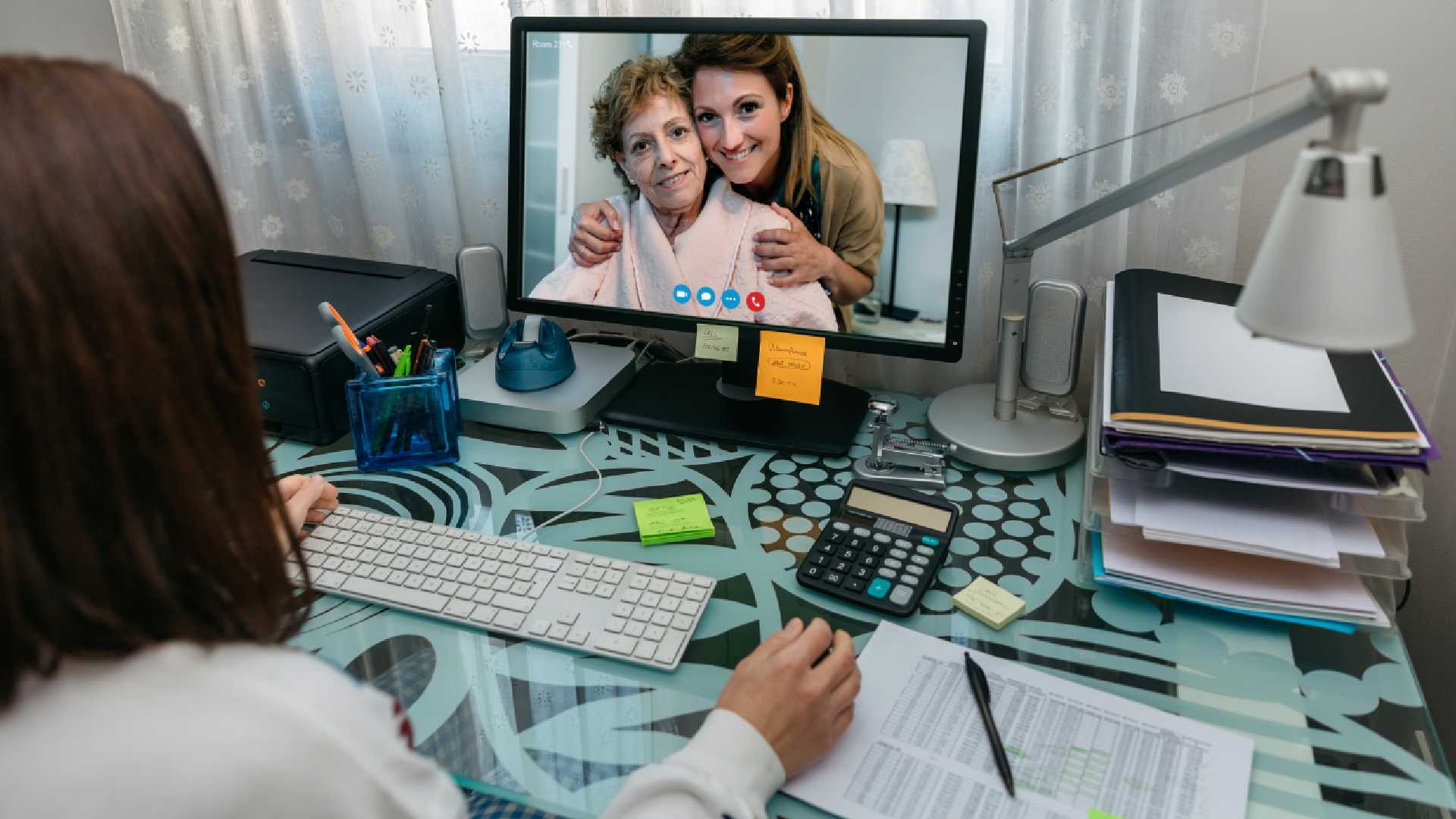
Understanding Telepsychiatry
Telepsychiatry is an innovative approach to mental health care that uses technology to connect you with mental health professionals from the comfort of your home. This method not only expands access to care but also provides a convenient option for those seeking treatment.
Benefits of Telepsychiatry
Telepsychiatry offers numerous advantages that make it an appealing option for adults and families searching for mental health therapy. Some of the key benefits include:
| Benefit | Description |
|---|---|
| Convenience | You can attend appointments from home, removing barriers related to travel and time. |
| Comfort | Many individuals feel more at ease discussing sensitive topics in their own environment. This leads to increased patient satisfaction, as research shows that comfort levels significantly enhance engagement and openness. (PubMed Central) |
| Access | Telepsychiatry increases access for individuals in rural or underserved areas, allowing more people to receive the care they need. |
| Equivalence to In-Person Care | Studies indicate that telepsychiatry is equivalent to in-person care in terms of diagnostic accuracy, treatment effectiveness, quality of care, and patient satisfaction. (American Psychiatric Association) |
Evolution of Telepsychiatry
The concept of telepsychiatry isn’t new; it has roots dating back to experiments conducted in 1959. Over the decades, interest and research in this field have flourished, primarily in the 1990s when technology advanced significantly. This transformation has allowed telepsychiatry to become a viable option for mental health care.
As technology continues to evolve, the opportunities for expanding telepsychiatry into various aspects of mental health, including treatment for depression, anxiety, and dual diagnosis care, have grown. With Medicaid coverage expanding for such services, it puts telepsychiatry within reach for many who may have previously struggled to access quality mental health care.
If you are looking for specific services that may be covered by Medicaid, consider exploring our articles on mental health treatment that takes medicaid and psychiatrists who accept medicaid. These resources can direct you toward the assistance you need for effective mental health care.
Medicaid Coverage for Telepsychiatry
Understanding how Medicaid covers telepsychiatry services is essential for accessing the mental health care you need. With the rise of telehealth, particularly during the COVID-19 pandemic, more options have become available.
Medicaid Reimbursement Policies
Medicaid’s reimbursement policies for telepsychiatry can vary significantly from state to state. Federal Medicaid law does not specifically address telehealth delivery methods, offering states broad flexibility in designing these services. As long as the services meet the requirements of the Social Security Act and state plans, states can develop their own telehealth policies.
Currently, 43 states and the District of Columbia provide reimbursement for some form of live video telehealth in Medicaid fee-for-service programs. However, only 16 state Medicaid programs reimburse for store-and-forward services, also known as asynchronous telemedicine.
Here’s a summary of key points regarding Medicaid reimbursement for telepsychiatry:
| Feature | Details |
|---|---|
| Federal Guidelines | States have flexibility in designing telehealth policies. |
| Live Video Coverage | 43 states + D.C. cover some form of live video telehealth. |
| Store-and-Forward | Only 16 states reimburse for asynchronous telemedicine. |
| State Plan Amendments | States don’t need a separate SPA for reimbursement equal to in-person services. |
Medicaid-Covered Telepsychiatry Services
The services that Medicaid covers via telepsychiatry generally include those that are treated in-person. This may encompass psychiatric evaluations, medication management, therapy sessions, and counseling for various conditions such as anxiety, depression, and dual diagnoses.
Reimbursement policies can provide comprehensive coverage similar to in-person services if the conditions are met. Here are some common types of telepsychiatry services covered by Medicaid:
| Service | Description |
|---|---|
| Psychiatric Evaluation | Initial assessment of mental health conditions. Psychiatric evaluation covered by medicaid |
| Medication Management | Ongoing care regarding prescribed medications. Medication management that takes medicaid |
| Counseling for Depression | Counseling sessions specifically focused on depression. Counseling for depression that accepts medicaid |
| Anxiety Treatment | Services dedicated to treating anxiety disorders. Anxiety treatment covered by medicaid |
| Dual Diagnosis Treatment | Integrated treatment for co-occurring disorders. Dual diagnosis treatment that accepts medicaid |
In addition to these services, Medicaid may also cover other types of mental health support, depending on the provider and the specifics of the state plan. For a complete view, consult our resource on mental health treatment that takes medicaid.
Accessing telepsychiatry that accepts Medicaid can help you receive critical mental health care from the comfort of your home. Always ensure that your chosen provider is in-network and approved by your state’s Medicaid plan.
Providers Offering Telepsychiatry
When seeking mental health support that accepts Medicaid, you have several options for telepsychiatry services. Here, we will highlight two notable providers: e-Psychiatry Services and Teladoc Health.
e-Psychiatry Services
e-Psychiatry is an online platform where you can find licensed psychiatrists who accept Medicaid insurance. They offer a range of services for various mental health conditions, including ADHD, bipolar disorder, anxiety, and substance use disorders. These professionals can prescribe medications and provide therapeutic support directly through telemedicine (e-Psychiatry).
With e-Psychiatry, you will have access to an easy online prescription service. Licensed psychiatrists can offer prescriptions for mental health and substance use conditions after conducting virtual appointments. This convenience allows you to receive the care you need from the comfort of your home, making it easier to manage your mental health challenges.
| Feature | e-Psychiatry Services |
|---|---|
| Accepts Medicaid | Yes |
| Conditions Treated | ADHD, bipolar disorder, anxiety, substance use |
| Service Type | Online consultations and prescriptions |
| Platform | Telemedicine |
Teladoc Health Offerings
Teladoc Health is another reputable provider that offers telepsychiatry services, including those that accept Medicaid. Teladoc provides comprehensive mental health services, allowing you to connect with licensed mental health professionals for therapy or medication management.
Through Teladoc, you can expect a flexible appointment schedule, enabling you to choose times that work best for you. Their services cover a variety of mental health issues, ensuring you receive tailored support based on your unique needs. Both initial evaluations and ongoing care can be managed through their platform.
| Feature | Teladoc Health |
|---|---|
| Accepts Medicaid | Yes |
| Conditions Treated | Wide range of mental health issues |
| Service Type | Online therapy and medication management |
| Appointment Flexibility | Yes |
Both e-Psychiatry and Teladoc Health provide valuable resources for adults and families searching for mental health treatment that takes medicaid. Whether you’re looking for therapy for anxiety, dual diagnosis care, or other mental health concerns, these providers can offer support to help you on your journey.
Telepsychiatry Effectiveness
Clinical Outcomes
When considering the effectiveness of telepsychiatry, it’s important to note that research has demonstrated its equivalence to in-person care in crucial areas such as diagnostic accuracy, treatment effectiveness, and overall quality of care. Telepsychiatry has proven to be particularly effective for conditions like PTSD, depression, and ADHD. Many studies indicate that patients experience positive outcomes across various demographics and age groups.
| Measure | Telepsychiatry | In-Person Care |
|---|---|---|
| Diagnostic Accuracy | Equivalent | Equivalent |
| Treatment Effectiveness | Equivalent | Equivalent |
| Quality of Care | Equivalent | Equivalent |
| Patient Privacy | Similar | Similar |
| Patient Confidentiality | Similar | Similar |
Patient Satisfaction Levels
Satisfaction among telepsychiatry patients is consistently high, with many individuals preferring virtual consultations. Patients appreciate the ease of discussing sensitive topics from the comfort of their homes, which can be especially beneficial for children, adolescents, and vulnerable populations. According to research, these groups often find it easier to engage in discussions during virtual visits (PubMed Central).
| Satisfaction Aspect | Level of Satisfaction |
|---|---|
| Overall Experience | High |
| Comfort in Discussions | Increased |
| Preferred Method of Care | Virtual (High Preference) |
Telepsychiatry represents a valuable resource for adults seeking mental health support, particularly those covered by Medicaid. If you are looking for specific treatment options, consider exploring therapy programs that accept medicaid, or find mental health treatment that takes medicaid. Don’t forget to check the availability of psychiatrists who accept medicaid in your area for personalized care.
Implementation of Telepsychiatry
Utilization in Different Settings
Telepsychiatry is transforming mental health care by making services accessible in a variety of environments. You might find telepsychiatry utilized in:
- Patients’ Homes: Convenient for individuals seeking therapy without travel.
- Private Practice: Provides flexibility for both therapists and patients.
- Outpatient Clinics: Increases efficiency in managing patient loads.
- Hospitals: Offers immediate psychiatric support in emergency situations.
- Correctional Facilities: Ensures consistent care for incarcerated individuals who may have limited access to mental health services (American Psychiatric Association).
- Schools: Facilitate support for students in need of mental health intervention.
- Nursing Homes: Delivers ongoing psychiatric care for residents, improving their quality of life.
- Military Treatment Facilities: Addresses unique challenges faced by service members and veterans.
Each of these settings takes advantage of telepsychiatry to provide high-quality mental health care to populations that previously faced barriers to treatment.
Technology Challenges and Solutions
Despite its benefits, telepsychiatry does face some technological challenges. Here are some common issues and possible solutions:
| Challenge | Description | Solution |
|---|---|---|
| Audio Quality | Poor sound can hinder communication. | Use headsets and ensure devices meet audio standards. |
| Internet Connectivity | Disruption can interrupt sessions. | Recommend using wired connections and conducting speed tests. |
| Visual Quality | Low video quality may impede assessments. | Utilize high-definition cameras and reliable software. |
| Technical Difficulties | Patients may struggle with software use. | Provide step-by-step guides or tutorials on using platforms. |
| Security Concerns | Issues regarding patient privacy and data security. | Implement secure platforms that comply with HIPAA standards (PubMed Central). |
Clinicians who were initially hesitant about telepsychiatry due to these concerns often report a change in perspective after experiencing the system firsthand. They acknowledge improved patient access, reduced waiting times, and enhanced service quality (PubMed Central). By addressing the technological challenges, telepsychiatry can effectively provide mental health services to those in need.
If you’re looking for mental health support that accepts Medicaid, explore resources like mental health treatment that takes medicaid and therapy programs that accept medicaid to find services that work for you.
Future of Telepsychiatry
The landscape of telepsychiatry is evolving, particularly with significant changes in Medicare policy. Understanding these shifts can help you navigate your mental health needs more effectively, especially if you’re seeking telepsychiatry that accepts Medicaid.
Medicare Policy Changes
During the COVID-19 public health emergency, Medicare implemented crucial policy changes for telepsychiatry services. These changes aim to improve access to mental health care and have become permanent in many aspects. Notable changes include:
- Reimbursement for Audio-Only Platforms: Medicare now allows reimbursement for telepsychiatry services provided through audio-only communication platforms, which is particularly beneficial for individuals who may not have reliable internet access.
- No Geographic Restrictions: These services can be delivered from anywhere, removing prior restrictions that limited access based on geographical location.
- Federally Qualified Health Centers and Rural Health Clinics: These facilities are now authorized to provide telepsychiatry services, expanding access for those living in rural areas or those who find it challenging to travel to appointments.
These adjustments are significant for your ongoing mental health treatment. Clinical providers are more likely to offer telepsychiatry options that are convenient and tailored to your needs. For more comprehensive services, consider looking into various mental health treatment that takes Medicaid.
Potential Impact on Mental Healthcare
The changes in telepsychiatry policies may lead to a positive impact on mental healthcare overall. Here are some potential benefits you might experience:
| Impact Area | Description |
|---|---|
| Increased Access | More individuals can receive timely care without geographical barriers. This can significantly benefit those in underserved communities. |
| Cost-Effectiveness | With expanded services, patients may see reduced travel costs and time off work, making healthcare more affordable and accessible. |
| Improved Continuity of Care | Regular access to telepsychiatry can enhance your ability to stay connected with mental health professionals and treatments. This consistency can foster better outcomes and recovery. |
As telepsychiatry continues to develop, it’s becoming increasingly important for you and your loved ones to stay informed about available options and resources. If you’re looking for specialized services, check out programs like dual diagnosis treatment that accepts Medicaid, or explore counseling for depression that accepts medicaid. With the ongoing evolution in policies and services, support is more accessible than ever.







